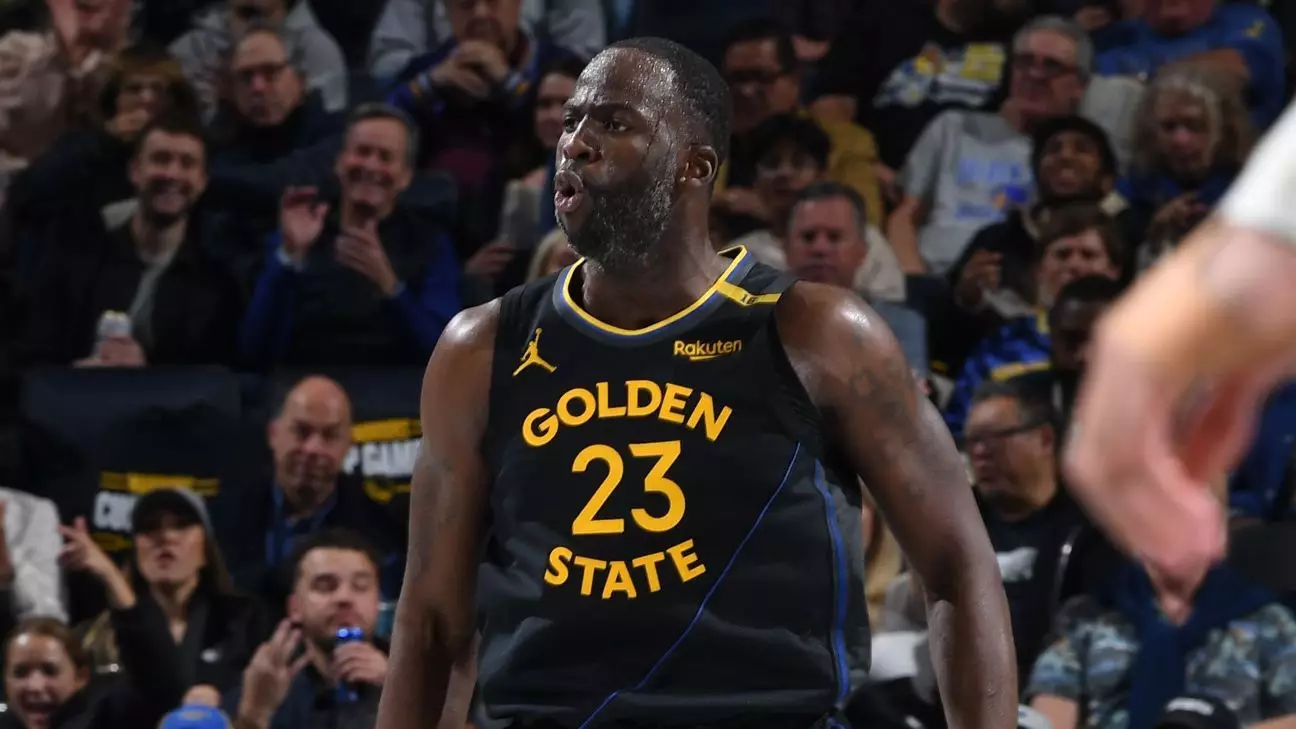The world of professional sports, particularly in the realm of basketball, is rife with stories of camaraderie, competition, and occasional conflict. One incident that sent ripples through the Golden State Warriors’ organization was the infamous altercation between Draymond Green and Jordan Poole. More than two years have elapsed since that moment, but the repercussions seemed to linger, prompting Green to recently address the public regarding the incident. His reflections offer a blend of remorse and a plea for closure, underscoring the complex dynamics of relationships within high-stress environments like the NBA.
To comprehend the significance of Draymond Green’s apology, one must first examine the context leading up to the incident. The altercation occurred during a preseason practice in October 2022, following a championship-winning season. Despite the team’s success, tension simmered behind the scenes as the players adjusted to the pressures of professional sports. Add to this mix the emotional strain of expectations and the struggle for individual egos, and it was a recipe for potential conflict. The subsequent punch that Green threw at Poole was not just a fleeting moment of anger; it was a culmination of stress and frustration, not only for Green but for the team collectively.
Green’s initial regret was palpable as he publicly apologized to Poole and his family in the aftermath of the incident. This public act was essential, considering the importance of accountability in an organization that thrives on unity. Yet, here lies the complexity—his recent comments hint at a sense of victimization, as if the burden of guilt rests solely on his shoulders. Green’s mixed feelings on the altercation evoke a critical point on the nature of conflict resolution; understanding mutual accountability is vital to mending relationships.
Recently, former teammate Jordan Poole made headlines upon his return to Chase Center as a member of the Washington Wizards. His warm reception marked a stark contrast to the earlier tensions. In response to Poole’s sentiments of still caring for his former teammates, Green offered a candid acknowledgment of his actions—essentially calling for a cessation to the drama that had persisted for too long. His tweet, expressing genuine remorse, carried an emotional weight but also revealed a desire to pivot away from the narrative that painted him as the sole antagonist.
On his podcast, Green articulated the duality of his feelings, recognizing both his wrongdoing and the role Poole played in the incident. By suggesting that Poole’s remarks brought the issue back into the limelight, Green subtly underscored the necessity of moving forward rather than dwelling on the past. His comments illustrate a common dynamic in personal relationships where unresolved conflicts can resurface, often triggered by external stimuli or reflections from past experiences. However, it remains crucial for both parties to find closure rather than falling into a cycle of blame.
Green’s journey since the altercation involves a significant evolution both as a player and an individual. Having faced suspensions for other incidents post-Poole altercation, he embarked on a path of self-improvement through therapy and accountability measures. The notion of personal growth in sports is not often spotlighted, yet Green’s acknowledgment that he has two therapists and a sports psychologist indicates a serious investment in his mental health.
Taking accountability for one’s actions is a critical lesson not just for athletes but for anyone in high-pressure situations. By openly discussing his struggles, Green attempts to reshape his public image from that of a volatile player to one who learns from his missteps. This metamorphosis can inspire others, showing that failure is not a permanent state but a stepping stone to personal and professional betterment. Furthermore, his commitment to fostering better relationships while maintaining on-court discipline enhances not only his game but also strengthens the team dynamic that ultimately defines championship-caliber teams.
As the Warriors move forward and integrate new players, the repaired relations between Green and Poole will play a crucial role in the team’s chemistry. With both characters making strides towards reconciling their past, fans and analysts alike will be keen to observe how the team’s dynamics evolve this season. Green’s journey of accountability and personal growth stands as a testament to the often-overlooked psychological aspects of sports.
Ultimately, while the incident between Green and Poole may have left a scar on the fabric of the Warriors, the potential for healing and growth remains immense. Self-reflection in a team setting can cultivate resilience and unity—qualities that are essential for achieving greatness. Such narratives serve as reminders that, in the competitive environment of professional sports, moving beyond conflicts with grace and accountability can lead to new heights of success, both on and off the court.

